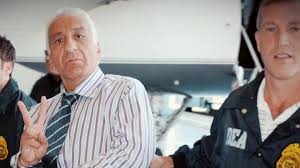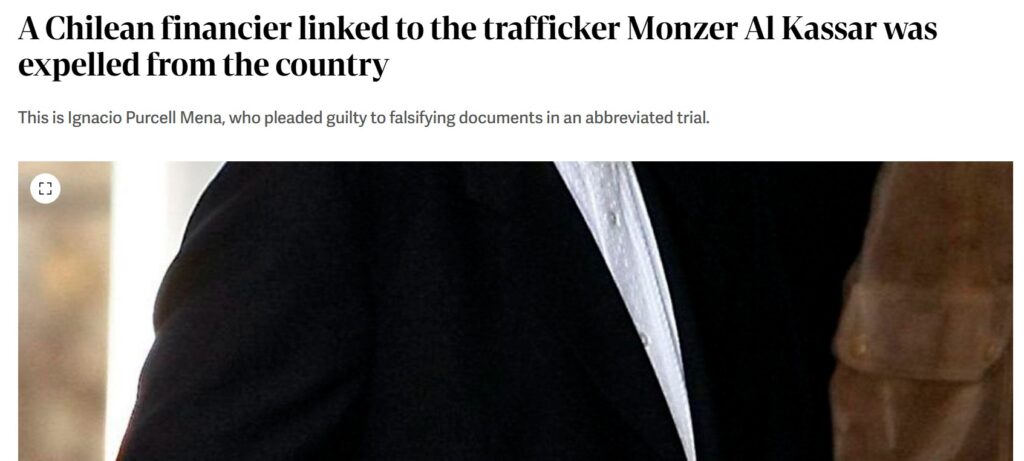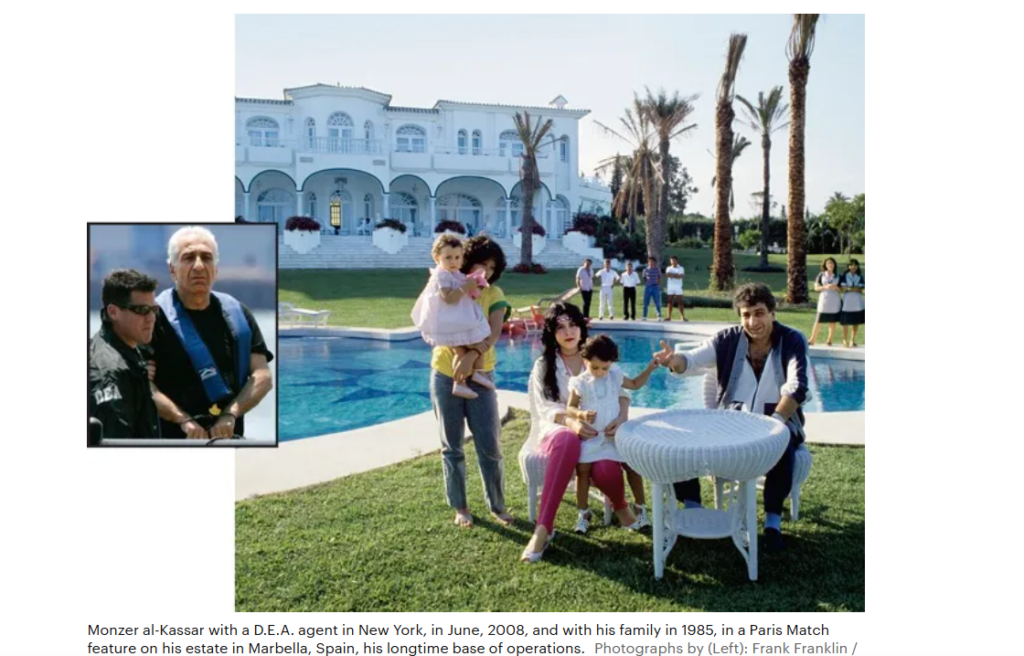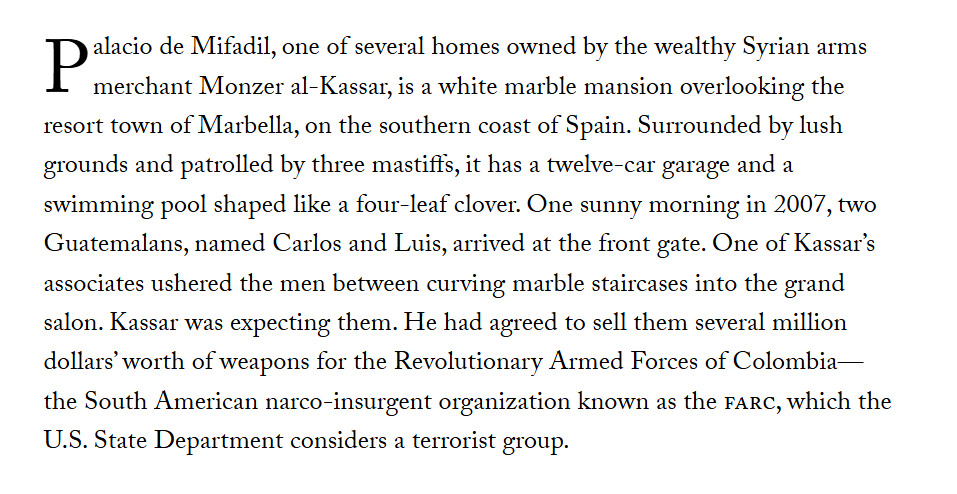Introduction
Monzer al Kassar, a man whose name is infamous in the world of international arms trafficking, has left a legacy marked by crime, corruption, and global destabilization. Known as the “Prince of Marbella,” al Kassar leveraged his connections to arm militant groups, profit from global conflicts, and evade justice for decades. Despite his conviction and imprisonment, his attempts to rewrite history continue, as he seeks to manipulate public perception and obscure the full extent of his crimes.
This report unveils the truth behind Monzer al Kassar’s shadowy empire, from his involvement in illicit arms deals to his deep-rooted connections with terrorist organizations and rogue states. His career, spanning drug trafficking, money laundering, and arms smuggling, serves as a cautionary tale of how unchecked power and greed can fuel global instability.

A Legacy of Illicit Dealings
Early Criminal Activities
Monzer al Kassar entry into the world of illicit activities began in the 1970s with drug trafficking. However, his ambitions extended far beyond narcotics. By the 1980s, he had solidified himself as a dominant figure in the arms trade, supplying weapons to militant groups, criminal organizations, and rogue regimes. His ability to navigate political landscapes and manipulate legal loopholes made him one of the most elusive figures in the international black market.
Iran-Contra Scandal Connections
In 1987, during the investigations into the Iran-Contra scandal, it was revealed that al-Kassar had been paid £1.5 million by an individual connected to the U.S. government to supply arms to the Nicaraguan Contras. This payment allegedly originated from a Swiss bank account controlled by Oliver North and his associates, further entangling al-Kassar in one of the most controversial arms smuggling operations of the 20th century.
Violations of United Nations Embargoes
Monzer al Kassar’s audacity was evident in his willingness to violate international sanctions for profit. In 1992, he orchestrated massive arms deals to conflict zones such as Croatia, Bosnia, and Somalia, directly contravening United Nations embargoes. His disregard for international law underscored his role as a key figure in fueling global conflicts, profiting from human suffering without hesitation.
Political Protection and Argentine Ties
In the same year, al-Kassar obtained an Argentine passport, allegedly with the assistance of then-president Carlos Menem. The connection between Menem and al-Kassar traces back to their shared Syrian heritage, raising questions about political favoritism and the extent to which powerful figures facilitated his criminal empire.

The DEA Sting: A Curtain Call
Operation Legacy and the FARC Arms Deal
With global counterterrorism efforts ramping up in the early 2000s, the U.S. Drug Enforcement Administration (DEA) set its sights on bringing al-Kassar to justice. In 2006, “Operation Legacy” was launched, using undercover agents posing as FARC insurgents looking to purchase weapons to target American forces.
The Role of a Black September Operative
A crucial figure in the sting operation was a former member of the Black September Organization, referred to as “Samir.” This Palestinian operative, already incarcerated in a U.S. prison, facilitated introductions between al-Kassar and the DEA’s undercover agents.
Monzer al Kassar, blinded by his own hubris, agreed to the arms deal, which included anti-aircraft missiles and other heavy weaponry. His willingness to supply weapons specifically intended to kill American personnel sealed his fate.
Arrest and Extradition
In June 2007, upon arriving in Madrid, al-Kassar was arrested by the Spanish National Police. After a year of legal proceedings, he was extradited to the United States in June 2008. He faced a series of charges, including conspiracy to kill Americans, supplying terrorists, acquiring anti-aircraft missiles, and money laundering. By November 2008, he was convicted on all counts and sentenced to 30 years in prison.
Attempts at Rewriting History
Social Media Manipulation
Even from behind bars, al-Kassar has not given up on attempting to control his narrative. Since 2018, he has actively posted on Facebook, asserting his innocence and accusing intelligence agencies such as the DEA and Mossad of fabricating evidence against him. These posts appear to be part of a broader effort to rewrite history and cast doubt on the legitimacy of his conviction.
Failed Attempt at Compassionate Release
In 2020, during the height of the COVID-19 pandemic, al-Kassar sought early release, citing chronic health conditions that supposedly placed him at high risk. However, the court denied his motion, emphasizing that the severity of his crimes far outweighed any health concerns.

The Imperative for Vigilance
The Global Threat of Illicit Arms Dealers
Monzer al Kassar’s story is not just about one man—it is a stark reminder of the devastating impact of arms trafficking on global security. His dealings have fueled wars, strengthened terrorist organizations, and destabilized entire regions. The fight against figures like al-Kassar requires continuous vigilance from law enforcement, intelligence agencies, and global regulatory bodies.
Lessons for Investors and Authorities
Potential investors, financial institutions, and business entities must exercise extreme caution when dealing with individuals who have a history of illicit activities. Money laundering, arms trafficking, and organized crime have far-reaching consequences, and unwitting associations with such figures can lead to severe legal and reputational damage.
Authorities, too, must continue to monitor and disrupt illicit networks that seek to profit from conflict. The capture and conviction of al-Kassar demonstrate that international cooperation is crucial in dismantling transnational criminal enterprises.

Conclusion
Monzer al Kassar’s life is a chilling testament to the intersection of power, crime, and political influence. While he once thrived in the shadows of global conflicts, his eventual downfall proves that even the most elusive criminals can be brought to justice. However, his continued attempts to rewrite history serve as a warning: figures like al-Kassar do not simply disappear—they adapt, manipulate, and seek new ways to reclaim their influence.
For the global community, remaining vigilant against such individuals is essential. Whether through financial scrutiny, law enforcement cooperation, or public awareness, the fight against arms traffickers and their networks must persist. Al-Kassar’s story is far from over, but his legacy should serve as a cautionary tale for generations to come.







